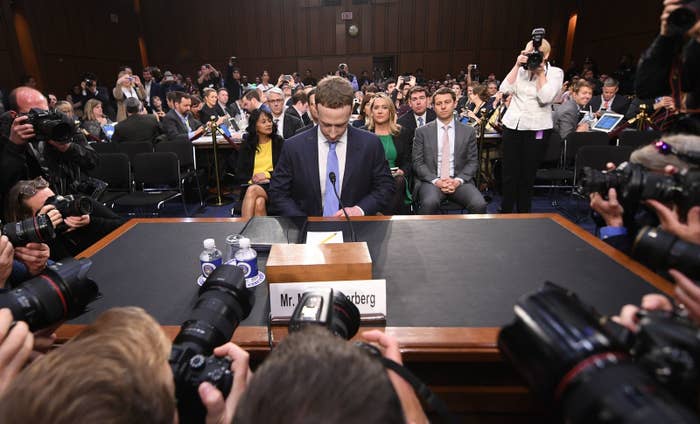
As federal regulators and Congress zero in on Apple, Google, Facebook, and Amazon, they’re about to encounter one of the most difficult rulemaking challenges in US history. The tech giants don’t fit neatly into the existing model for antitrust action since many of their services are available for free, making any consumer harm they may or may not have done difficult to grasp and quantify. And perhaps more vexingly, they are constantly shifting shape, adding new business lines with regularity to keep pace with a fast-changing technology industry. In Washington, it’s going to be hard to figure out where to even begin.
“One of the things we’ve seen in the past with regulation is by the time the courts catch up to regulating the industry often new industries emerge,” Rep. Ro Khanna, who represents a large slice of Silicon Valley, told BuzzFeed News. “Of course, we need regulation, but it has to be thoughtful regulation and well-crafted regulation.”
Consider the moving target the Federal Trade Commission will encounter when it examines Amazon. The FTC won’t just be dealing with a retailer, but an outsourced logistics provider, a grocer, a cloud services clearinghouse, a hardware manufacturer, and a voice search company. And as the FTC works to get its head around these business lines, Amazon will inevitably expand into more — the company is rumored to be debuting a home robot this year.
Welcome to the Tech Giant Update, a newsletter about Amazon, Apple, Facebook, and Google. You can subscribe here.
Amazon is ferociously aggressive in many of its business lines, yet it faces fierce competition in nearly all of them. There’s Amazon.com vs. Walmart, Whole Foods vs. the broader grocery industry, AWS vs. Microsoft Azure, Amazon Echo vs. Google Home.
With such a diverse set of businesses, Amazon will make it hard for regulators to reign in the “bigness” many are hoping it will tackle. Amazon and its fellow tech giants are nothing like the Bell Telephone Company or Standard Oil, which grew dominant by finding a core advantage and defending it at all costs. They have instead built their empires through continual reinvention, and they are far more nimble than their corporate predecessors. Regulators will therefore have to comb through each business line, consider the market dynamics in each, and toe the line between policing anti-competitive behavior and picking winners and losers.
“I think there is a lot of appetite for letting the market sort lots of things out,” Robert Seamans, an associate professor at NYU’s Stern School of Business who spent a year as a senior economist at the White House Council of Economic Advisers, told BuzzFeed News. “We don’t want to pick a China model where the government decides everything that should happen.”
While some are advocating for a breakup of the tech giants, such a move is likely politically infeasible. Breaking up these companies would create more competition, but it would open up the door for Chinese companies to enter the void, a fact that worries both Silicon Valley executives and the federal government. And public servants in Washington who follow poll numbers closely know well that Big Tech is popular among the general population. “They have the most precious asset, their approval ratings are in the 70s and 80s,” Khanna said of the tech giants. “Everyone in Congress, we celebrate when we get in the 40s or 50s.”
A meek federal regulatory body has long resisted sinking its teeth into this messy situation. But now that the proceedings are underway, the most likely outcome — if any rules are made — is one in which small changes are enacted. “My sense is that the animating principle behind regulation should be very simple,” Khanna said. “A company shouldn’t be able to privilege its own products, you shouldn’t be able to have anti-competitive platform privileges.”
The FTC, according to a report by Vox, is indeed already asking how Amazon competes with third-party sellers on its platform. The agency is also expected to fine Facebook a few billion dollars for privacy violations, a sum that sent the company’s stock up when Facebook told investors about it. The Department of Justice will investigate Google’s search and ad-tech businesses, according to reports, but it would be a major surprise if the department takes a more aggressive approach than European regulators and goes beyond examining whether Google privileges its own products, as Khanna laid out. Rulemaking along these lines would be meaningful, but would do little to slow down the tech giants overall.
Much of the coverage on the new set of investigations by the FTC, DOJ, and Congress has focused on the prospect of hearings Big Tech will likely now have to sit through. These hearings would be unpleasant for the tech giants, as would fines and other restrictions. But for this new set of corporate giants, time and competition — either among themselves or from the outside — are the most probable forces to check their power.
